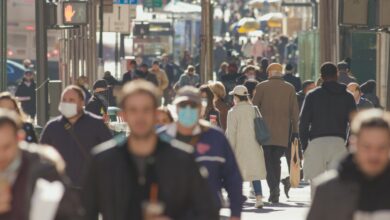A
A
A
If you have been following the latest coronavirus developments, you may have heard that the respiratory virus has affected the lives of millions of people worldwide. According to statista.com, an online portal that provides data on the global digital economy, industrial sectors, consumer markets, and much more, the United States has been hit especially hard, with more than 5.4 million confirmed cases of the virus. Further, the coronavirus, also known as COVID-19 or SARS-CoV-2, has claimed the lives of more than 170,000 Americans. According to many infectious disease experts, the number of coronavirus cases and associated deaths could be much lower if more people wore masks or face coverings of some kind.
Despite credible data proving that wearing masks or other face coverings can help prevent the spread of the deadly coronavirus, many people are vehemently opposed to wearing them. And this is despite mask-wearing mandates in several states, including New York, Wisconsin, New Mexico, North Carolina, and others. Some individuals refuse to wear a mask or other face coverings due to medical reasons. And others have refused to wear them to flout mask-wearing mandates in their specific state, which they believe infringes on their freedom of choice, according to U.S. Surgeon General Jerome Adams. Many infectious disease experts, including Dr. Anthony Fauci, the director of the National Institute of Allergy and Infectious Diseases, believe that this mindset, which is shared by countless Americans, will likely lead to even more confirmed coronavirus cases in America.
Read More »
Studies Confirm Wearing a Face Mask Offers Significant Protection Against COVID-19
Something to note when it comes to the coronavirus, otherwise known as COVID-19 or SARS-CoV-2, is that the virus is microscopic. To further put this into perspective, it helps to take a look at an article published in The Conversation, a network of nonprofit media outlets that publish news stories written by academics and researchers, which noted that the novel coronavirus is approximately 0.1 microns in diameter. For context, the size of the coronavirus is much smaller than the aerosols released into the air when we are coughing, talking, or breathing, typically between 0.7 and 10 microns in diameter. If an individual has contracted COVID-19, the virus can attach to the biological fluids in their mouth and lungs. Therefore, if they cough, talk, or even breathe, especially in an enclosed space, there is a strong possibility that they could spread the virus to others who are not wearing a mask. That said, it stands to reason that wearing a face mask would go a long way toward keeping individuals from passing on or becoming infected with the virus. To that point, a study published by the World Health Organization found that wearing a mask could reduce the spread of COVID-19 by as much as 85 percent.
The Most and Least Effective Face Masks to Use During the COVID-19 Pandemic
If you are ready to protect your health and the health of your family during COVID-19, you will want to invest in the right kind of face mask. To help narrow down your selection, here is a list of the most effective and ineffective masks to use during COVID-19:
Most Effective
Surgical masks – While they are not the easiest to find, surgical masks offer excellent protection against COVID-19. These loose-fitting disposable masks are designed to prevent virus-containing droplets from entering the wearer’s nose and mouth.
N95 masks – Similar to surgical masks, N95 masks might be difficult to find; however, they do offer world-class protection against a host of infectious diseases. As the name might suggest, N95 masks can block 95 percent of the tiny particles that contain harmful bacteria and viruses, including SARS-CoV-2, that would otherwise make their way into an individual’s airways and, in turn, make them sick. These masks are also equipped with one-way valves, which makes breathing through them slightly easier than other masks.
Cloth masks – Although not to the same extent as N95 or surgical masks, some cloth masks can protect against COVID-19 as long as they are washed after each use and worn correctly. Additional recommendations, according to the Centers for Disease Control and Prevention, for those who choose to wear a cloth mask to protect against contracting SARS-CoV-2 include the following:
- Washing your hands before putting on the mask
- Ensuring that the mask completely covers the nose and mouth
- Not touching the mask while wearing it
- Washing your hands immediately after removing the mask
- Placing the mask in a sealable bag when it is not in use
Least Effective
Homemade masks – While cloth masks do offer some protection against SARS-CoV-2, those made from T-shirts are not very effective, according to an article published by USA Today. While it is not immediately clear why this is the case, it’s believed that the material that makes up a T-shirt is too thin to prevent virus-containing droplets from entering the nose and mouth. Ideally, those who opt to use cloth masks should craft them from thicker fabrics, such as towels, scarves, and sweatshirts, for example.
Non-respirator earloop masks – These disposable cloth masks do not protect individuals from contracting SARS-CoV-2. However, they do keep them from spreading the virus to others if they are already infected.
Bottom Line
All in all, there is plenty of evidence that shows wearing any type of face mask, especially when in enclosed spaces or engaging in a social connection, can go a long way toward preventing the spread of COVID and lowering the high death rate associated with the virus.






